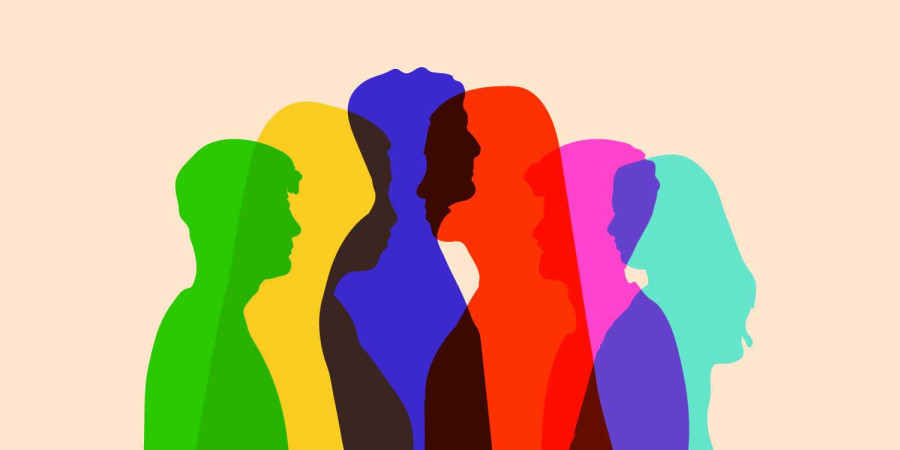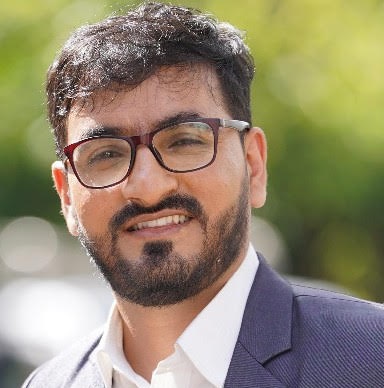Columns
Unprotected and unaccepted
Progressive court rulings favouring LGBTQIA+ rights have failed to address their mental health needs.
Tika Ram Bhusal
In Nepal, belonging to the LGBTQIA+ community often means living between two difficult realities: The constitution pledging “equality” but not defending LGBTQIA+ individuals from violence and stigma, and a society that smiles at diversity only on posters while whispering insults at family dinners. Most LGBTQIA+ people spend all their adolescence hiding bruises under school uniforms, adulthood couch-surfing after getting kicked out by their parents, and middle adulthood nursing untreated anxiety and depression because “real men don’t cry” and “good women marry”. The loneliness is so heavy, it starts to feel like part of who you are.
As an LGBTQIA+ individual enters adolescence or early adulthood, they often begin to experience a range of mental health challenges stemming from confusion, fear and social pressure related to their identity. Therefore, negative perceptions, misinformation and disinformation within families and society, rejection of identity, and experiences of violence, stigma and discrimination have all contributed to a serious and growing mental health crisis within the Nepali LGBTQIA+ community.
Nepal is one of the most progressive countries in Asia when it comes to LGBTQIA+ rights. The Constitution of Nepal 2015 has acknowledged same-sex marriage under its fundamental rights. Articles 12, 18 and 42 of the constitution, which guarantee fundamental rights related to citizenship, equality and social justice, reflect the country’s strong commitment to inclusion and protection of gender and sexual minorities. The Supreme Court’s landmark 2007 decision opened doors for the recognition of a third-gender identity, and a 2023 interim order allowed same-sex (LGBQIA+) couples to register for marriage temporarily.
While homosexuality remains criminalised in 64 countries worldwide, and punishable by death in 10, Nepal stands out as a progressive exception. The country has never criminalised consensual same-sex relationships or the identities of LGBTQIA+ individuals. Furthermore, the apex court has issued seven landmark rulings in favour of the gender and sexual minority community, contributing significantly to the gradual improvement of the legal and social environment for LGBTQIA+ individuals.
Despite progressive constitutional provisions and landmark court decisions, the lack of effective implementation has prevented the LGBTQIA+ community in Nepal from being fully included in the country’s development. Systemic barriers, combined with a hostile social environment, have taken a toll on the mental health of many LGBTQIA+ individuals. As a result, some are on long-term medication for anxiety and depression, while others have been driven to suicide.
Mental healthcare in Nepal is critically under-resourced. As per the Psychiatrists’ Association of Nepal, Nepal has only 241 psychiatrists for a population of 30 million, and most are clustered in the capital. Healthcare centres charge fees that queer youth, who are often cut off from family support, cannot afford. Community clinics rarely grasp the nuances of gender dysphoria or minority stress. For instance, a Trans man describing chest-binding pain may be told to “just dress normally”. In many cases, when an HIV diagnosed gay man or MSM (men who have sex with men) visits an Antiretroviral Therapy (ART) centre for HIV treatment, the experience can be more stigmatising than supportive.
If, during counselling, the counsellor learns that the client has engaged in anal sex, the reaction is often judgmental rather than empathetic. Instead of receiving informed care, he may be questioned harshly, “Why would you, as a man, have sex with another man?” Such responses not only add emotional distress but also reinforce stigma and discrimination.
Many LGBTQIA+ people in Nepal rely on each other for support. Facebook or social media groups become places to ask for help, and respect homes run by the Blue Diamond Society (BDS). Its branch offices turn into safe spaces for those who need shelter. This solidarity saves lives, but it shouldn’t be the only option.
Government policies, laws and guidelines related to mental health have largely overlooked the Gender and Sexual Minorities (GSM) community. Even progressive court rulings in favour of LGBTQIA+ rights have failed to meaningfully address their mental health needs. For instance, Nepal’s National Mental Health Policy (1996) makes no mention of the unique mental health challenges faced by sexual and gender minorities.
For many GSM individuals, life is already challenging, but when identities of caste, disability, or health status are added, things become even harder. Dalit LGBTQIA+ people face caste-based stigma and discrimination/abuse along with homophobia/queerphobia. Queer people with disabilities are often treated like children. HIV-positive LGBTQIA+ individuals face judgment in hospitals, abuse from police, and violence in public and private spaces, all while struggling to pay rent and bills. Mental health services must recognise these intersectional struggles. Otherwise, they risk offering support that doesn’t fit people’s real-life pain.
In a 2023 survey by UN Women, 71 percent (848 out of 1,181) LGBTQIA+ individuals reported having experienced emotional violence, which includes verbal abuse, ridicule, shaming and bullying. Ensuring good mental health and ending the emotional violence faced by sexual and gender minority individuals requires deliberate and inclusive action.
To improve mental health and safety for LGBTQIA+ people, Nepal should take several necessary steps. First, current laws and regulations must be revised to eliminate gender-discriminatory provisions. Similarly, Sexual Orientation, Gender Identity, Gender Expression and Sex Characteristics (SOGIESC)-based offences should be clearly defined along with ensuring timely and effective police response, and incorporating strong witness protection measures. Clear and inclusive legislation sends a powerful message to victims that their lives, identities and dignity truly matter.
Effort needs to be made to include SOGIESC/LGBTQIA+ knowledge in national mental-health policies by training counsellors, doctors and social workers, and by placing psychologists in government hospitals. Concomitantly, community-led crisis centres like respect homes should be prioritised for funding. A nationwide campaign to reduce stigma and discrimination can be launched in local languages. Fifth, teaching the concept of identity and respect from the primary level can help reduce bullying and build empathy. Moreover, creating emergency housing and job support for queer people facing family rejection can help them find safety and stability.
Most importantly, the government must work together with healthcare centres and LGBTQIA+ organisations to provide counselling and treatment services to LGBTQIA+ individuals. Authorities must ensure inclusive laws, self-identified gender recognition, marriage equality (rainbow marriage), safe schools/colleges, equal jobs, accessible LGBTQIA+-friendly healthcare, protection from violence and accurate evidence collection—all essential for safeguarding the mental health and dignity of LGBTQIA+ people in Nepal.




 8.26°C Kathmandu
8.26°C Kathmandu















